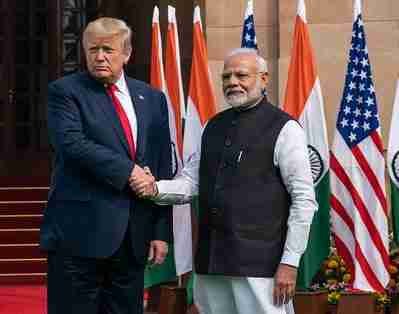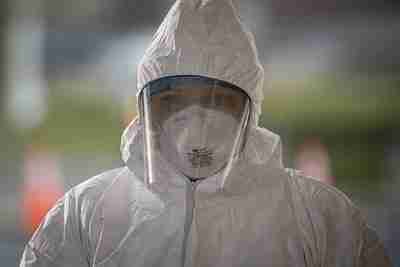Coming close on the heels of the trade war between the US and China, the COVID 19 pandemic, which is believed to have originated from the L 4 laboratory at the Institute of Virology in Wuhan, has further increased Chinese vulnerabilities. The WHO’s 62 members have demanded an impartial investigation to establish the origins of the virus for further research in finding the right vaccine for immunisation. In his opening remarks at the commencement of the WHO meeting by video conferencing, the Chinese President, Mr. Xi Jinping said China would support the investigation after the pandemic ends.
As the pandemic is not likely to end soon, a long wait is anticipated before the investigation can begin, which points to the possibility of the Chinese trying to cover up what may have happened. The suspicion gets compounded by China’s internal dynamics. At least two journalists, who were reporting live from Wuhan during the initial phase of virus infection have gone missing and foreign journalists based in Beijing have been harassed no end.
Many countries are now demanding a cut back in their trade ties with China, and are seeking to revamp their home industries to reduce their reliance on Chinese products. The Taiwan issue is another front that seems exposed. Many countries have openly appreciated Taiwan’s handling of COVID-19, its quick communication to WHO, and the assistance provided by Taiwan to many countries to mitigate the impact of the Wuhan virus.
Now, the US and other countries are openly voicing support for Taiwan’s entry into UN bodies like WHO, ICAO, IMO, etc where Taiwan has made a significant contribution. The US has also recently authorised the sale of F-16 air superiority interceptors to Taiwan. Concerns over Taiwan prompted Beijing to sail its fleet, including its lone aircraft carrier Liaoning, in the Taiwan straits. It was suitably responded by Taiwan’s Air Force and soon followed by the US and Australian warships.

China and its many worries
China appears to be also irked by India, on account of its increasing trade with Taiwan, and its support in the WHO, to an independent investigation of the corona pandemic. China is also concerned by seemingly close India-US bilateral relations, Indo-Pacific strategy and increasing activities of Quad(US, Japan, India and Australia).
This despite the fact that India’s Prime Minister, Shri Narendra Modi, in his speech at the Shangri La dialogue on 1 June 2019, made it abundantly clear that the Indo-Pacific was an all-inclusive strategy and not aimed at any country. Another issue that has irked China is the revision of the Indian trade policy, which requires any neighbouring country’s investment in India to be routed through the government. The Chinese ambassador in Delhi reacted adversely by stating that it was aimed at PRC and could impact overall bilateral relations.
In early May, Chinese troops clashed with Indian forces in North Sikkim and in the Galwan Valley in Ladakh. This was followed a couple of weeks later by the Nepalese government laying claims to Indian territory on its Western border with India, with the Indian Army Chief stating that the Nepalese action was perhaps instigated by a third country without naming China! The internal political dynamics in Nepal remains messy, with PM Oli’s popularity having taken a dip and demands for his resignation being voiced by various factions within the party, making him susceptible to Chinese influence.
In the overall context, China has opened itself on too many fronts, understandably to strengthen President Xi Jinping’s position prior to CCP’s National People’s Congress. The Chinese President also faces internal challenges such as China’s declining reputation in the world, the centenary of Communist Party in 2021, the full Congress meeting in 2022 wherein successor for a 10 year period is identified etc.
The World and China
The world will closely watch the events in China, and the new assertiveness in Chinese policy in its push for the BRI and attempts to impose Chinese laws in Hong-Kong which has been met with large scale opposition from the local citizens. China has opened up multiple fronts for itself in quick time, the smoke of which is unlikely to subside soon. It will have an adverse impact on China’s trustworthiness as far as following Rule of the Law is concerned, which is undesirable for a budding superpower.

Indian foreign policy remains committed to one China when it comes to Taiwan and MEA maintains strict discipline in Hong Kong and Xinjiang. India has a number of Consulates in China(including one in Hong Kong) on the basis of reciprocity. Perhaps the time has come for elevating trade office in Taipei to a Consulate, given the increasing trade between two partners and increasing connectivity. Post COVID-19, Taiwan’s investments in India are poised for increment, and people to people exchange would increase due to trade, commerce, education, etc.
There is already a mechanism of exchange visits between Parliamentarians of the political parties of Taiwan and India. This doesn’t violate one-China policy since there are a number of Indian Consulates in various cities of China and there could be one in Taipei. This could facilitate stronger economic ties and the movement of people between two democratic partners.


